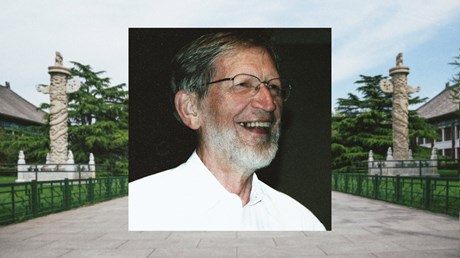The analytical philosopher’s Reformed epistemology is greatly helpful for Christian apologetics and theological education in China.

Alvin Plantinga is perhaps one of the most influential Christian philosophers in the West today. His achievements are staggering: He powerfully argued against the logical problem of evil, launched the renaissance of Christian philosophy, reinvigorated apologetics, and profoundly inspired many Christian scholars.
But what many in the West may not know is that Plantinga is also very well-received by academics in China.
His magnum opus, WarrantedChristian Belief (hereafter WCB), was first published in English in 2000 and then translated into Chinese by a team of Chinese scholars, some of whom were atheist philosophers, and published in 2005 by Peking University (the “Chinese Harvard”). The launch of the Chinese edition of WCB was held at the university in celebration of Plantinga’s 70th birthday. I was astonished by the respect and admiration Chinese scholars had for this Dutch-American philosopher.
During the academic symposium following the book launch, an atheist philosopher was appointed to critically respond to Plantinga’s paper. He began his response by saying, “The organizer of this conference owes me no thanks. Alvin Plantinga is my intellectual idol.” Soon, Plantinga’s WCB became one of the best-selling academic books in China. Plantinga later said that his work was even more welcome in China than in the US!
Reformed epistemology benefits apologetics
Plantinga points out in WCB that arguments against the rationality of the Christian faith—which he calls “de jure objections”—are inseparable from arguments against the contents of the faith—which he calls “de facto objections.” This implies that any de jure objections to Christianity should ...
from Christianity Today Magazine
Umn ministry




.gif)

.gif)
.gif)
